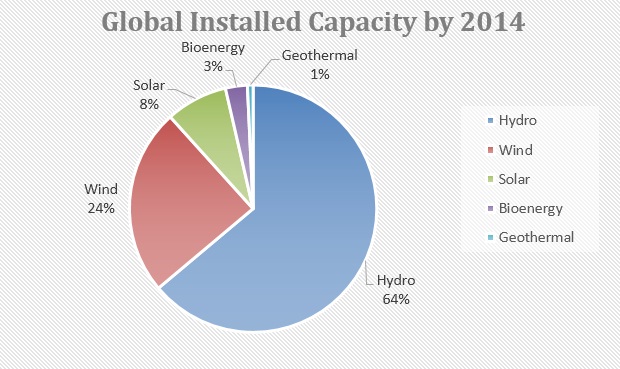Although renewable facilities require upfront investments to build they can then operate at very low cost for most clean energy technologies the fuel is free.
Consequences of renewable energy resources.
Fossil fuels coal oil and natural gas do substantially more harm than renewable energy sources by most measures including air and water pollution damage to public health wildlife and habitat loss water use land use and global warming emissions.
Several forms have become price competitive with energy derived from fossil fuels.
All energy sources have some impact on our environment.
Nearly a third of the earth s electricity will come from renewables by 2024 according to the international energy agency.
According to the international renewable energy agency irena doubling the renewable energy share in the world energy mix to 36 by 2030 will result in additional global growth of 1 1 by that year equivalent to 1 3 trillion dollars a increase in wellbeing of 3 7 and in employment in the sector of up to more than 24 million people.
However renewable sources such as wind solar geothermal biomass and.
The social environmental and economical problems can be omitted by use.
Renewable energy sources wind solar biomass hydroelectric geothermal etc are generally thought of as harmless but this doesn t mean they have no environmental consequences at all.
Renewable energy resources offer cleaner alternatives to fossil fuels.
As a result renewable energy prices can be very stable over time.
Conventional energy source based on coal gas and oil are very much helpful for the improvement in the economy of a country but on the other hand some bad impacts of these resources in the environment have bound us to use these resources within some limit and turned our thinking toward the renewable energy resources.
Renewable power is booming as innovation brings down costs and starts to deliver on the promise of a clean energy future american solar and wind generation are breaking records and being.
Renewable energy usable energy derived from replenishable sources such as the sun solar energy wind wind power rivers hydroelectric power hot springs geothermal energy tides tidal power and biomass biofuels.





























